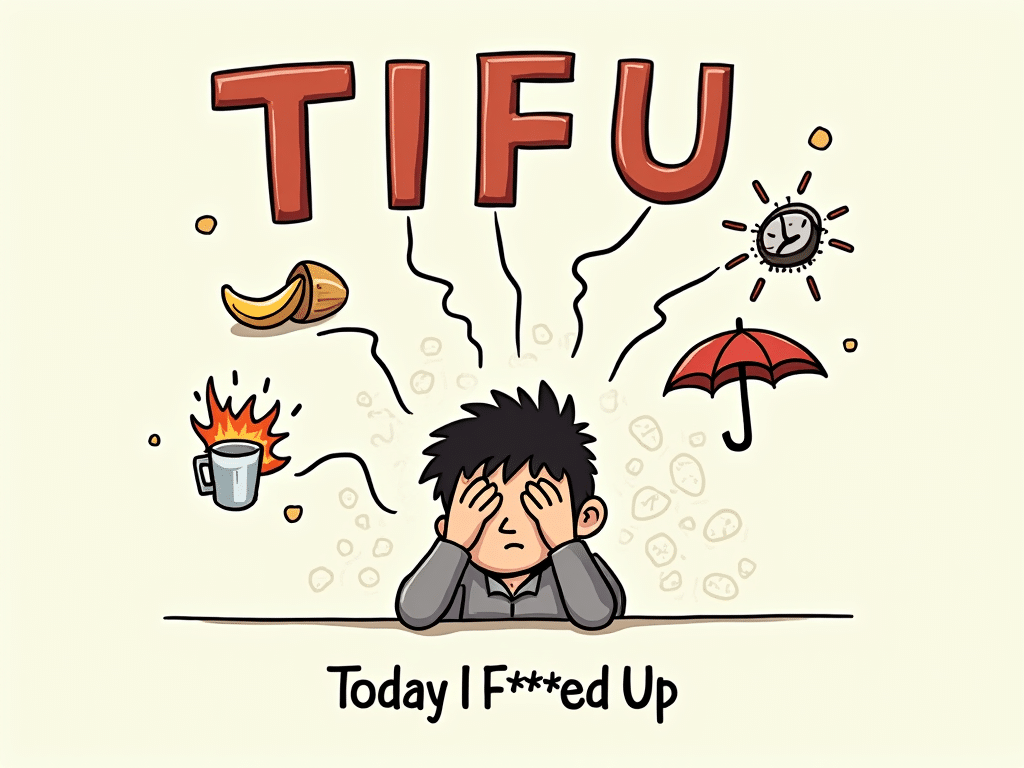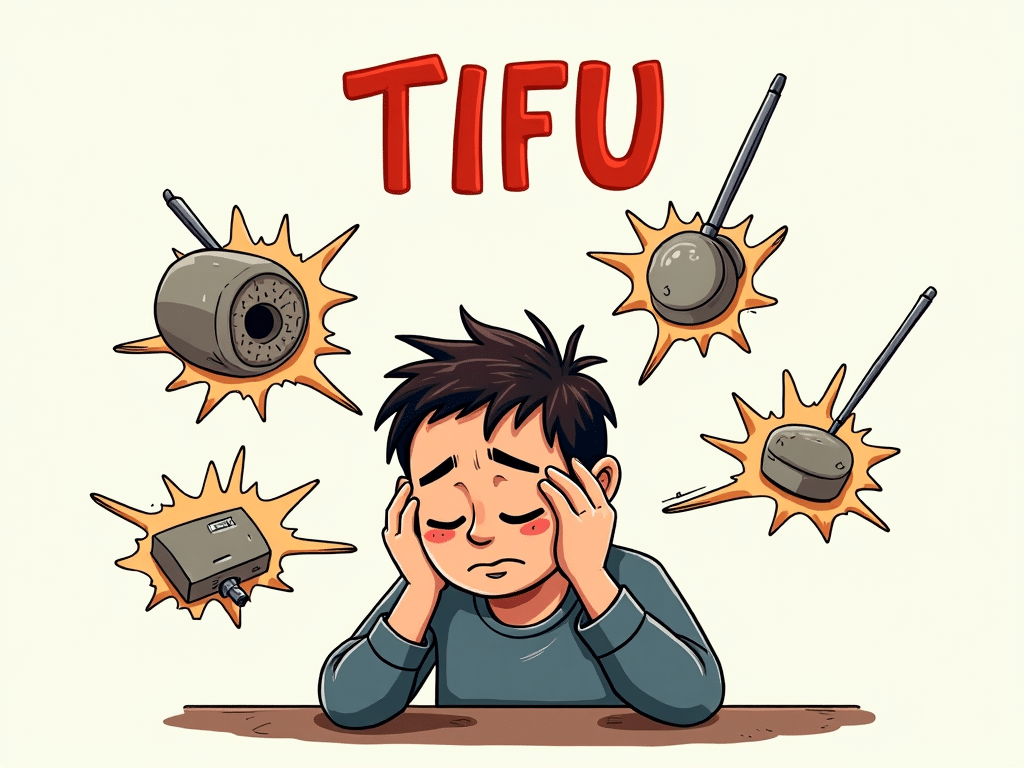TIFU stands for “Today I F*ed Up.” It’s a popular term in internet culture used to share stories about mistakes or blunders, often with humor and relatability. This abbreviation is widely recognized on social media and forums, particularly on Reddit, where users share their most cringe-worthy moments.
| Key Takeaways | Description |
|---|---|
| Meaning | TIFU means “Today I F*ed Up.“ |
| Usage | Used to share humorous or relatable stories about mistakes. |
| Origins | Became popular on Reddit around 2012. |

Origins and Popularity
The acronym TIFU originated on Reddit around 2012, coinciding with the launch of the r/TIFU subreddit. This community quickly grew into one of Reddit’s largest spaces for users to post about their day-to-day mistakes and laugh about them. The subreddit became a hub for storytelling, where people could share their blunders without fear of judgment, finding camaraderie in shared human error.
Why It Became Popular
- Relatability: Everyone makes mistakes, and sharing these moments can be both therapeutic and entertaining.
- Humor: TIFU stories often highlight the funny side of mishaps, making them enjoyable reads.
- Community: Platforms like Reddit provide a supportive environment where users can connect over shared experiences.
Usage in Conversations
TIFU is often used in casual conversations to preface a story about a mistake or embarrassing moment. Here are a few examples of how it can be incorporated in different contexts:
- Personal Anecdotes: “TIFU by spilling coffee all over my boss’s desk during the meeting.”
- Social Media Posts: “TIFU by forgetting my best friend’s birthday—sorry, buddy!”
Also read: 222 Meaning
Using TIFU not only expresses your regret but also adds a light-hearted feel to the situation, inviting others to share their own stories of blunders. It’s similar to using phrases like oops when acknowledging a mistake with humor.
TIFU on Social Media

TIFU has found a home on various social media platforms like Twitter and Facebook, where users share short, funny stories. It’s also a popular theme for memes and viral content, adding a humorous twist to everyday mishaps.
Examples on Social Media
- Twitter: “TIFU by sending a text meant for my crush to my mom. Awkward!”
- Memes: Often feature relatable scenarios where things go hilariously wrong.
Using TIFU in these contexts helps create engaging content that resonates with audiences, much like using emojis to convey emotion or humor.
Other Meanings of TIFU

While “Today I F*ed Up” is the most common meaning, some people use alternative phrases like “Today I Fudged Up” to keep it PG. However, these variations are less common and usually context-specific.
Practical Tips for Using TIFU
Here are some tips for using TIFU effectively:
- Be Genuine: Share real experiences to connect with others.
- Keep It Light: Focus on the humorous aspects of the situation.
- Know Your Audience: Ensure your story is appropriate for the platform and audience.
Also read: IMO Meaning
When to Use TIFU
- Casual Conversations: Perfect for sharing funny mishaps with friends.
- Social Media Posts: Great for engaging followers with relatable content.
- Storytelling: Use it to add humor and relatability to your narratives.
Conclusion
Understanding and using TIFU can make your storytelling more engaging and relatable. It’s a fun way to share life’s little blunders, whether you’re posting online or chatting with friends. By knowing when and how to use it, you can turn mistakes into memorable stories that entertain and connect.
Remember, just like other slang terms such as lol or smh, TIFU is all about keeping things light and humorous. So next time you have a mishap, consider sharing it with a “TIFU” and enjoy the laughs!







